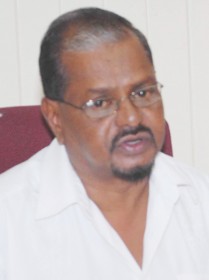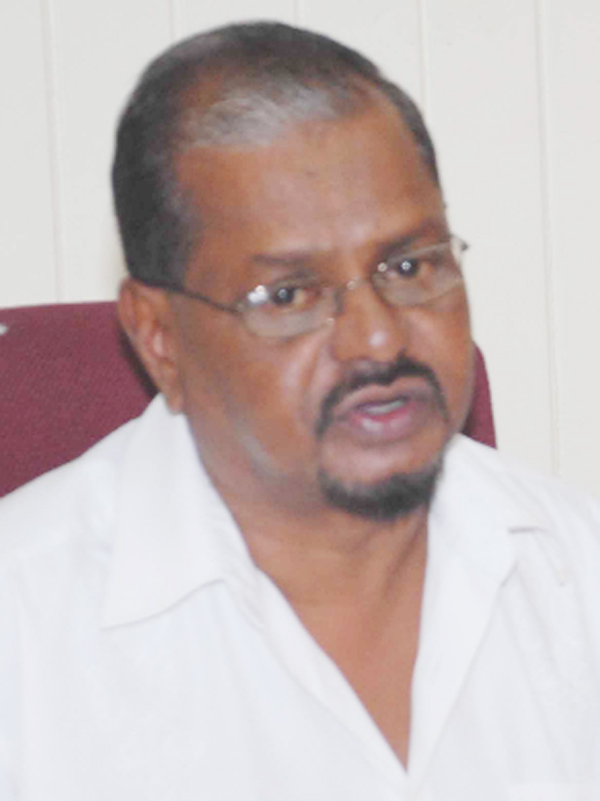-major role seen for minister
Nine years after a two-party review began, the PPP/C administration yesterday completed the tabling of local government reform legislation including the key fiscal transfers bill which is intended to make municipal and neighbourhood councils more financially secure.

Local Government Minister Kellawan Lall presented the Fiscal Transfers Bill 2009 and the Municipal and District Councils (Amendment) Bill 2009 for first reading in the National Assembly. He also requested that both bills be immediately referred to the special select committee tasked with reviewing the other proposed legislative reforms, which are crucial to the running off of the polls.
The other bills which have been tabled are the Local Authorities (Elections) (Amendment) Bill 2009, the Local Government Commis-sion Bill 2009 and the Local Government (Amendment) Bill 2009.
In late May, President Bharrat Jagdeo said the reform legislation – previously the work of the Local Government Reform Task Force – would be introduced in the parliament and sent to a select committee for a two-week review to allow for the holding of the long delayed elections this year. However, the piecemeal tabling of the bills over the last three weeks has been met with severe criticism by the opposition, which has insisted on reviewing the entire suite of legislation.
The opposition has also been emphasising that all political parties had agreed to the implementation of all reforms before going to the polls.
The parliamentary opposition parties had up to yesterday’s sitting withheld their participation in the select committee, on the basis that all the relevant legislation had not been tabled in keeping with a commitment given by the government. The main opposition PNCR refused to name its nominees to the committee, while the AFC indicated that it would not participate in deliberations until all the bills were tabled. The PNCR, GAP /ROAR and AFC have all maintained that unresolved issues in the legislation can be speedily resolved in time for the holding of local government polls before the end of the year, if there is political will and good faith on the part of the government to do so.
The provisions of the Fiscal Transfers Bill are likely to be among the contentious issues for the committee, since it vests considerable discretion in the Local Government Minister. The Bill seeks to provide for the allocation of resources to local democratic organs, thereby giving effect to Article 77(A) of the Constitution. The Constitution states that Parliament “shall provide for the formulation and implementation of objective criteria for the purpose of the allocation or resources to, and garnering of resources by local democratic organs. In this context, Clause 6 of the Bill sets out that the formula for fiscal transfers shall be based on “a set of conditions and stipulated performance indicators,” prescribed by regulations made by the Local Government Minister.
According to the Bill, “sets of conditions” means “the criteria used to determine the sum of money appropriated by Parliament annually to local democratic organs which are allocated equally among those local democratic organs with the remaining sum allocated to such local democratic organs in accordance to variables such as population size, geographic area or stipulated performance indicators which may be changed by the Minister from time to time.” Meanwhile, “stipulated performance indicators” are defined to include “the rate of collection of taxes by each local democratic organ.”
The Bill says the fiscal transfer formula is to be used to allocate financial resources to a local democratic organ from the aggregate sum appropriated in the annual budget. Additionally, all grants or disbursements to be made under the law is to be “aimed at improving the overall performance” of the organ.
Under the current financial dispensation, the revenue sustaining local authorities flows from collected rates and taxes, and central government, among the sources.
The Bill also sets out proposals to ensure the ability of local democratic organs to sustain themselves financially. In addition to the authorised imposition of rates on immovable property within their boundaries, Clause 3 of the Bill provides for each organ to increase revenues through measures. Clause 3(2) (i) proposes that with the prior written approval of the Minister a local democratic organ could approach donor agencies for financial and other resources in the form of grants, which may be used to fund capital projects or employment costs. Additionally, it is also proposed that local organs could negotiate with central government for specific revenue sharing contracts; establish vehicle meters to charge for parking, establish and charge for parking facilities and embark on revenue earning projects, agreed to by the Minister.
Clause 5 provides for the Minister to establish grants to any local democratic organ.
Unless otherwise directed by the Minister, the Bill says additional revenues would be paid into the general revenue account of the local democratic organ, from which disbursements could be made in keeping with financial regulations governing such funds.
The Bill also sets out conditions that have to be met in order for local organs to be eligible for fiscal transfers. It requires that each local democratic organ submit its budget estimates for the following year by November 15 of the current year, including previous as well as projected expenditure and revenue data as well as all relevant financial statements required by law.
It has been argued that without a formula for the fair sharing of revenues between central government and local government the administration exerts undue influence in local government matters and prevents a flowering of democracy at the grass roots.
In Georgetown, Mayor Hamilton Green has complained frequently that central government has thwarted the council’s efforts at raising its own finances and this is one of the reasons why the needs of the capital have not been adequately taken care of.
Meanwhile, the Municipal and District Councils Bill seeks to amend the principal Act, revising the provisions for municipal councils, while making no distinction between individual councils and towns.
The Bill proposes updating various fines, fees and charges in order to make them meaningful, according to its explanatory memorandum, in view of the currency values and present day market prices for goods and services. It also seeks to provide for the “devolution” of powers from the Minister unto various Town Councils, which would report directly to the Minister rather than the relevant Regional Democratic Councils.

